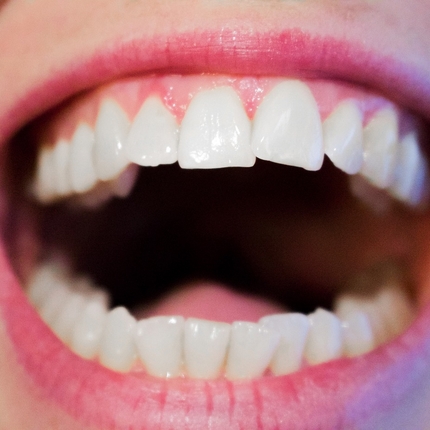Countless people across the U.K.—and in fact, all over the world—suffer from dental issues originating from their wisdom teeth. But what are wisdom teeth? Why do they cause so many problems? And how can you prevent these problems from happening?
Nearly every set of adult teeth has two molars in each quadrant. Then, in the late stages of adolescence, a third molar erupts. (A tooth “eruption” is a process in tooth development in which the tooth enters the mouth and becomes visible) This is the wisdom tooth.
Most adults will have four wisdom teeth, one in each quadrant of their mouths. Sometimes there will be more, sometimes less.
How Are Wisdom Teeth Different from Other Teeth?
Aside from erupting later than the other molars, wisdom teeth are by-products of human evolution. They are vestigial teeth that helped human ancestors chew and grind tough plants in a time before agriculture.
With agriculture and the ability to grow and harvest more suitable vegetables, modern humans no longer needed the big molars and strong jaws to survive. Human jaws have since shrunk to their current size, which can cause complications when wisdom teeth erupt, since there is no longer enough room to accommodate the additional tooth.
What Type of Risks Are Associated with Erupting Wisdom Teeth?
Wisdom tooth complications aren’t a new problem. It has been a known dental issue for centuries with even Aristotle, Plato, and Hippocrates lamenting about the great pain of incoming wisdom teeth. The oldest known impacted wisdom tooth affected a woman who lived over 12,000 years ago.
One of the most common reasons why incoming wisdom teeth can be so problematic is that they sometimes are not able to fully erupt (impacted wisdom tooth). They simply do not have enough room.
Problems Stemming from Wisdom Teeth
A partial eruption can lead to a number of issues:
- Damage to other teeth: With no space, an erupting wisdom tooth can rub and push against the other molars, causing pain and bite problems.
- Jaw damage: Impacted wisdom teeth can lead to cysts forming around the tooth. These can damage nerves and actually create hollows in the jaw.
- Sinus issues: Infection from impacted wisdom teeth can lead to sinus pain, pressure, and congestion.
- Periodontal disease: A wisdom tooth can crowd the other teeth, making it difficult for oral hygiene. This can lead to gingivitis, which causes irritation, redness, and swelling of the gums.
- Cavities: Difficult to clean places become breeding grounds for bacteria, which can cause cavities.
- Alignment: An erupting wisdom tooth can actually force other teeth out of position. Or the wisdom tooth itself can erupt at an uneven angle.
Partial Eruption of Wisdom Teeth
A partially erupted wisdom tooth can have its own complications. It may not be fully erupted, but it has broken out through the gums. This can be a major hygiene issue because the gums are soft tissue. With an opening in the gums, bacteria can more easily enter and cause infections.
Partially erupted teeth are especially susceptible to tooth decay because they are awkwardly positioned and difficult to brush and impossible to floss.
How to Resolve Wisdom Teeth Issues
Unfortunately, there isn’t a screening standard for a wisdom teeth’s potential for disease. Since every mouth is different, it’s up to a patient’s dentist to decide if a wisdom tooth needs to be extracted.
However, preventative care is one of the best ways to ensure wisdom teeth do not become a problem as they erupt or as the patient ages. While removing a tooth when it isn’t diseased seems unnecessary and intimidating, it can help dental patients avoid a more painful and complicated extraction in the future. It is now among the most routine procedures in dental healthcare.
Removing wisdom teeth in younger patients (whether it has begun to erupt or not) is also recommended, since the wisdom teeth roots have not fully formed, and the bone is less dense. Not only is the extraction easier, recovery is faster as well.
What Are Potential Complications of Wisdom Tooth Removal?
A fully erupted wisdom tooth can be extracted just like any other tooth. A wisdom tooth that is still beneath the gums may require an incision into the gums. In this case, the tooth will be extracted in pieces to preserve surrounding bone and tissue.
Patients who receive a simple and straightforward tooth extraction tend to recover faster. More complicated procedures will see full recovery up to six weeks later.
However like most procedures, there are certain risks. Some important (but not necessarily common) complications may include:
Dry Socket
Dry socket occurs when a blood clot did not form or was formed but has been dislodged. It occurs in about 5% of routine dental extractions (including erupted or partially erupted wisdom teeth) and up to 30% of extractions of wisdom teeth that are still beneath the gums in the jaw bone.
A dry socket is basically an open wound, which makes it easier for bacteria to enter. It is accompanied by pain and foul mouth odour. It can be treated with medication.
Paraesthesia
Paraesthesia is a rare complication with wisdom teeth still enclosed in the jawbone. Since the tooth is closer to the nerves, the nerves can get bruised or damaged during the extraction. This can cause numbness in the tongue, lip, or chin. It can last days, weeks, months, and in some cases, be permanent.
Bone Loss
Bone loss can occur on the second molar following wisdom teeth extraction. However, this is very uncommon in young patients.
Do You Need to Get Your Wisdom Teeth Removed?
Only a qualified dentist can tell you if you need to get your wisdom teeth removed. There are plenty of cases where wisdom teeth do not interfere with hygiene or bite alignment. However, if a tooth does become diseased, it can cause a great deal of pain and discomfort.
Consult with the best dentist in West Sussex to learn more about your wisdom teeth.


